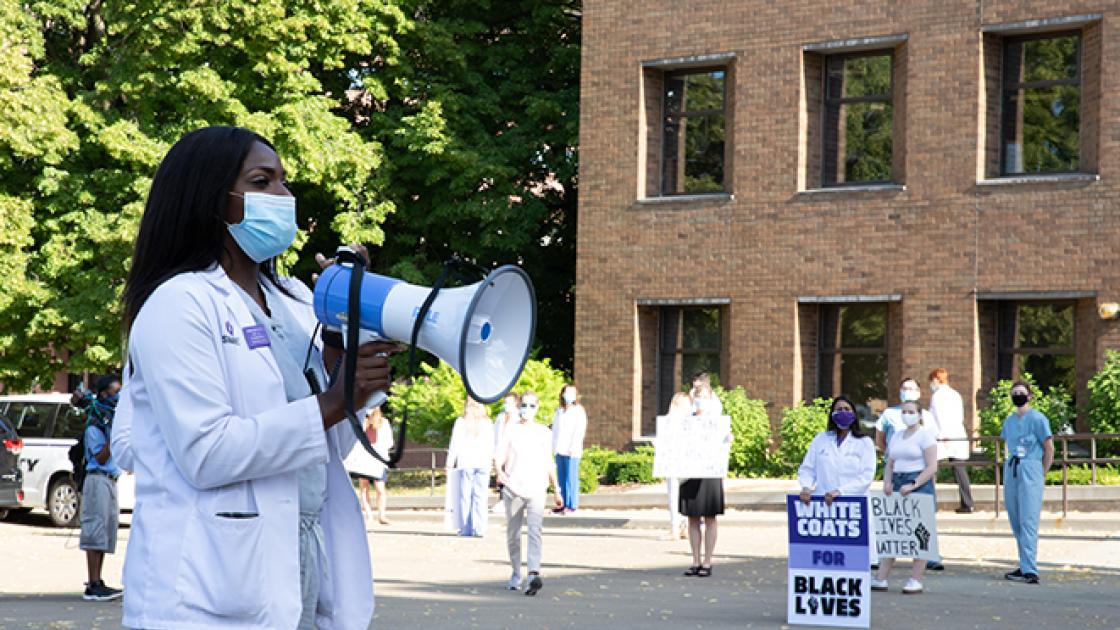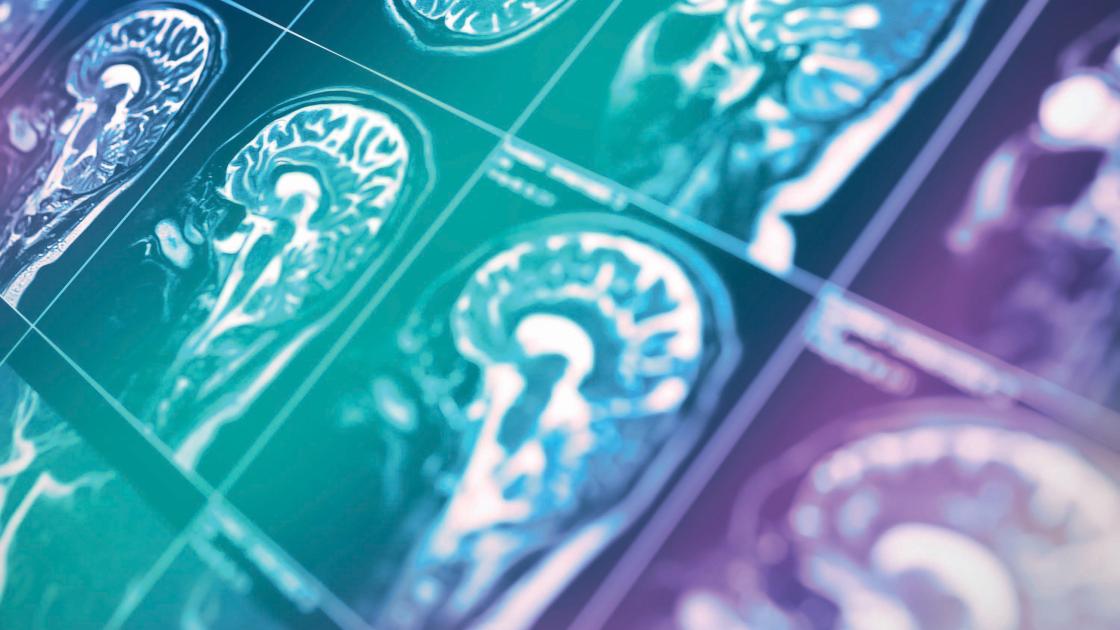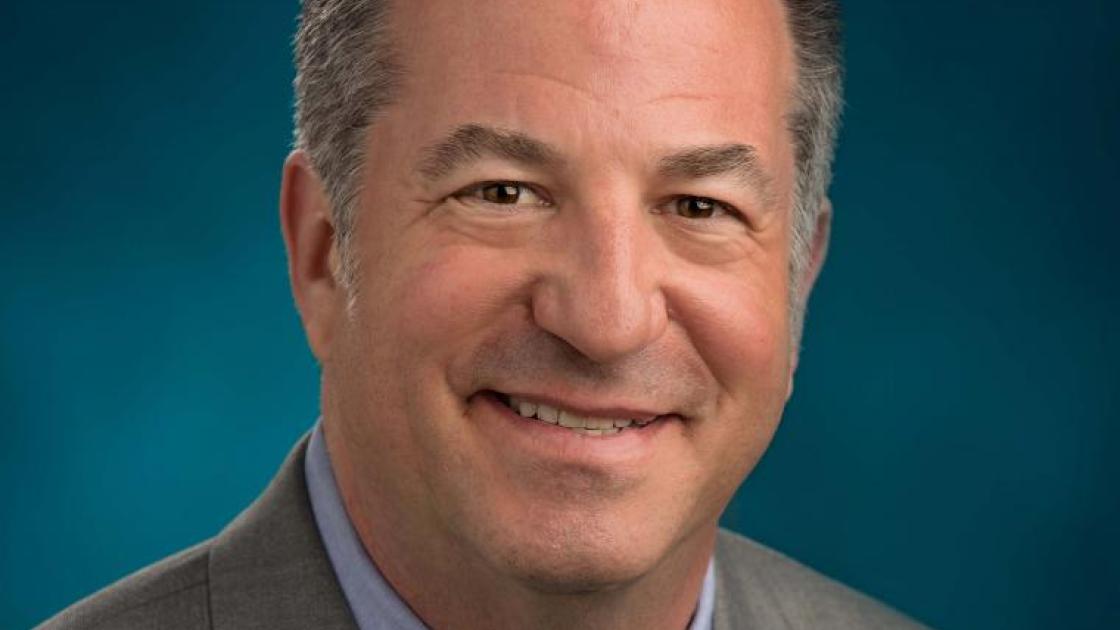
Police Brutality and Public Health

Police brutality illuminates a dark history in our society. There is no single universally agreed upon definition or guideline for when to use force. However, we know it when we see it. Police brutality was clearly on display when adults, children and our community witnessed George screaming he couldn’t breathe, crying out for his mother, and passing away as a knee was placed on his neck for eight minutes and 46 seconds. We saw a profound, inconceivable tragedy.
As physicians, we take a Hippocratic Oath. Witnessing this brutality without taking action violates our oath. Our collective response during this historic time will demonstrate the value we place on his humanity. Police brutality or police violence is legally defined as a civil rights violation where officers exercise undue or excessive force against a civilian. This includes but is not limited to physical or verbal harassment, physical or mental injury, property damage or death. The SIU School of Medicine Office of Equity, Diversity and Inclusion denounces both police brutality and racism.
Maintaining and building connection during this time will strengthen our SIU SOM community and model our commitment and desire for a better America. We have to advance medical innovation and apply the same rigorous approach to rise from this trauma and prevent future trauma. We must remain in the space of ingenuity, creativity, empathy, courage and compassion.
Our goal is to create a just and equitable institution; therefore, we are committed to be an antiracist institution. We must elevate our organizational commitment and action toward equity, diversity and inclusion. Our strategic plan outlines mechanisms to enhance the quality of our culture and interactions with colleagues, staff, patient and our community partners.
As the global pandemic has unfolded, it has inflicted immense pain upon our community and especially our minoritized communities. Some students, faculty and staff have been deeply affected, watching family members and their communities battle the coronavirus.
We were using all of our energy to navigate COVID’s dangers when the murders of Ahmad Aubrey, Breonna Taylor and George Floyd layered tragedy upon tragedy. Breonna Taylor was a 26-year-old African-American emergency room technician who was sleeping in her Louisville apartment moments before police entered with a no-knock search warrant and shot her eight times. Her killing sent fresh fear through the black community: you’re not even safe while sleeping in your own bed. Police brutality and racial violence strike our sisters and brothers as they try to sleep, jog or go bird watching. These incidents attack our sense of safety and take a profound psychological toll. Unfortunately, there are countless other tragedies that reveal how little some people value us.
Kareem Abdul-Jabbar said "racism in America is like dust in the air. It seems invisible – even if you are choking on it – until you let the sun in. Then you see it everywhere. As long as we keep shining the light, we have the chance of cleansing it."
Exhausted. Overwhelmed. Devastated. Numb. Confused. These are the responses I hear when I ask people, “How are you doing?” In order for us to move toward healing, we must navigate this American tragedy with a posture of courageous humility, accountability to humanity, and action beyond words. All are needed to move the needle toward equity and justice. We know our trauma response is to fight, flee or freeze. With racialized and stressful moments, we may experience a combination of outrage, paralysis and fear.
What keeps me up at night are the number of racialized incidents in conversations at dinner tables, in clinics, court rooms, and classrooms that go unchallenged. These incidents are the invisible dust that lead up to the visible tragedies. We must all look closer and find ways to be responsive to the trauma by asking ourselves a few questions.
What can I say?
Acknowledging pain is critical. Silence does not acknowledge pain. We must individually commit to speak up, not be bystanders but upstanders. We must audit our sphere of influence and develop clear lines of accountability. We are in the era where our humanity has been assaulted.
What can I do?
You can share in this immense pain as well. You can create space to recognize that many are moving through each day with a profound sadness and outrage. At SIU School of Medicine we reject any form of discrimination or harassment against our patients, staff, providers or students. We understand that racism is debilitating and a threat to public health. We will report and respond to incidents that do not reflect our values. We welcome your input of additional ways we can support our community during this time and continue to move the needle on equity and justice.
What do we say to students?
We recognize this time of heightened vulnerability and see the psychological toll. We are dedicated to your education and we compassionately care about your experiences. We offer this knowing you are providing concurrent compassionate care for patients . We commit to addressing social injustices that impact our community. We are here for you. We will enhance our curriculum so that you are equipped to understand and address health inequities. We are proud that you are going to be a part of the White Coats for Black Lives movement. Continue to channel your energy to do courageous work.
What’s next at SIU?
Last week we had a town hall called Finding a Way Toward Healing: Addressing Race-Based Trauma in an Antiracist Institution. Dean Kruse reiterated the words sent in his letter affirming that SIU SOM will be an antiracist institution. This week our students will have SIU’S first White Coats for Black Lives virtual town hall at 5 pm, Thursday, June 11. To further support our students and residents, we have started a series of collective healing roundtables. Our colleagues have come together to share resources and much more will be announced in the coming season.
Our society is in the ICU. Please urgently answer the call.
In solidarity,
Wendi Wills El-Amin, MD



